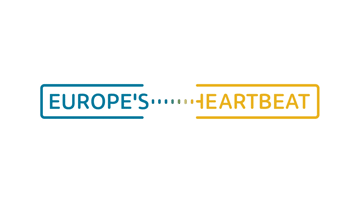Highest level of expansion projects in five years
For the Covid year 2020, the state-owned foreign trade promotion company NRW.Global Business reports a positive balance for North Rhine-Westphalia as an investment location. With a total of 408 new settlements and expansion projects, the state recorded a stable development in foreign direct investment (FDI) compared with the rest of Germany. While FDI flows in Germany and Western Europe as a whole fell by more than nine percent and in some cases by as much as 28 percent, North Rhine-Westphalia came through the crisis better, recording only a slight decline of 4.5 percent. As a result, the share of North Rhine-Westphalia's FDI projects in Germany increased from 23.1 to 24.2 percent compared to 2019. In addition, the state achieved its highest figure in five years with 79 expansion projects. Compared to the previous year, the number increased by 23 percent.
Economics and Innovation Minister Prof. Dr. Andreas Pinkwart: "The numerous foreign direct investments in 2020, a year marked by the pandemic, are proof of the robust competitiveness and high attractiveness of our state in the heart of Europe: It is an encouraging signal for the entire North Rhine-Westphalian economy that foreign companies continue to increase their investments in times of crisis. This will enable North Rhine-Westphalia to expand its position as the number one investment location for international companies."
Facts and figures at a glance:
- Greater China is back at the top of the list of major investor countries with 88 investment projects (prior year: 65). Turkey follows with 63 projects (prior year: 72).
- Japan recorded its highest result in five years: Despite the pandemic, the number of FDI projects grew by 48 percent from 27 cases in 2019 to 40 projects in 2020, with around half of all Japanese investments in Germany going to North Rhine-Westphalia.
- The number of jobs forecast also increased in 2020: With numerous large-scale projects creating a large number of jobs, the USA maintained its top position as a job engine in North Rhine-Westphalia, followed by Greater China and Japan.
"North Rhine-Westphalia is perceived internationally as a progressive innovation location. With our strong industrial base and excellent research landscape, we are able to convince companies concerned with future topics such as renewable energies, new mobility or biotech and thereby also advance North Rhine-Westphalia," explains Felix Neugart, CEO of NRW.Global Business.
Innovative energy solutions are the focus, for example, of Enapter, a specialist in hydrogen technology: The company, which originates from Thailand, is building a mass production plant for electrolysers for the production of green hydrogen in Saerbeck with up to 300 jobs. Cummins, the U.S. expert on zero-emission energy, is also focusing on North Rhine-Westphalia and is opening a production and research center for fuel cell technology in Herten. Emission reduction is also a focus at Marelli: The Japanese-Italian automotive supplier is building a new plant for electric motors in Cologne.
The pharmaceutical and medtech sectors recorded significant investment projects in the pandemic year 2020. The Chinese pharmaceutical company WuXi Biologics, for example, took over a Bayer AG production facility and now manufactures active ingredients for COVID-19 vaccines and other biologics in North Rhine-Westphalia. And the Dutch supplier of biological sample and test technologies QIAGEN is investing more than 110 million euros worldwide in expanding its production capacities for coronavirus tests, including at its Hilden site.
There is also a lot going on in the startup scene in North Rhine-Westphalia: The U.S. accelerator Quake Capital is settling in Cologne and focusing on promoting early-stage startups – especially in the area of 5G technologies. Chromatic 3D Materials, another U.S. software developer, chose Selfkant for its European headquarters. The company mainly produces spare parts using 3D printing. And Stockholm-based fintech Tink opened its first German office in Düsseldorf. With its open banking platform, Tink primarily targets banks, developers and startups.
North Rhine-Westphalia is Germany's number one investment location: Around 20,000 foreign companies employ almost one million people in the state.

